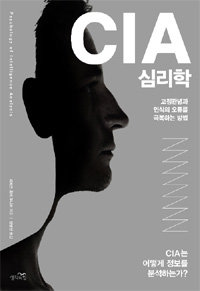How to make right choice in life
How to make right choice in life
Posted July. 27, 2019 07:20,
Updated July. 27, 2019 07:20

“Life is C (Choice) between B (Birth) and D (Death).” As French philosopher Jean-Paul Sartre once said, we get to make numerous choices during our lifetime. It was people’s effort to reduce errors in the process of making a choice and decision that led to the development of philosophy, science and civilization. Yet, we still agonize over things to be chosen, and repeat our mistakes.
This book is the result of the author’s studies about how we can make wiser decisions. The author paid attention to why we cannot recognize problems properly and repeat the same errors. A suggested solution was changing the way we assess information.
Richards Heuer, the author of “Psychology of Intelligence Analysis,” was a CIA veteran of 45 years and wrote the book by collecting and editing the agency’s internal documents. According to him, most errors happen because of the failure of analytical judgements. Human minds’ psychological and cognitive biases such as cognitive bias, evidence evaluation bias, and probability estimation bias, tend to trap their analysis of information in certain stereotypes.
It is interesting that CIA agents, whose job gives an impression that they would only make cool-headed decisions, are in fact well aware that they can always make mistakes. The book introduces errors at every level in society from those that happen in our daily life to political and diplomatic issues, including North Korea’s nuclear development, discussed by the world’s leaders. Heuer’s reasoning proves how difficult it is for us to get out of our inherent biases. Containing the author’s unique insights, the book is also used as a training material for U.S. public officials and CIA agents.
pep@donga.com







